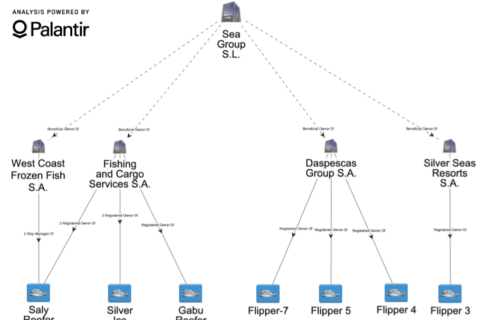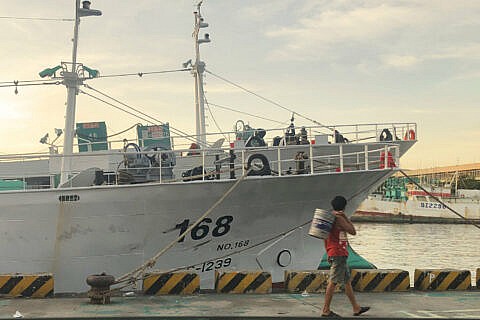Sea Shells

The global commercial fishing industry generates sales worth $141 billion each year, with an annual production of over 90 million tonnes of seafood. But who benefits from this endeavor? Behind the four million commercial fishing vessels in the global fleet lies a complex onshore network of shell companies, frequently concealing the true beneficiaries of this industry.
Executive Summary #
The global commercial fishing industry generates sales worth $141 billion each year, with an annual production of over 90 million tonnes of seafood. But who benefits from this endeavor? Behind the 4 million commercial fishing vessels in the global fleet lies a complex onshore network of shell companies, frequently concealing the true beneficiaries of this industry.
To date, fisheries’ monitoring and enforcement efforts have largely focused on tracking and pursuing individual vessels to curb illegal, unreported, and unregulated (IUU) fishing. But recent policy actions have shifted toward holding accountable ultimate beneficial owners (UBO): the individuals who are responsible for and receive the greatest financial benefit from fishing operations.
Greater transparency of the onshore networks could offer financial and legal benefits. It would allow policymakers to make informed decisions on fishing quota distributions, estimate taxable profits leaving the country, and better track financial flows. Greater transparency can highlight regulatory loopholes that enable exploitation of workers and natural resources, and can assist financial institutions and insurance companies in conducting more thorough risk assessments. Furthermore, a clearer understanding of vessel ownership networks would enable policymakers to implement stricter guidelines preventing insurance companies from insuring vessels or companies with histories of illicit fishing activities.
Despite growing awareness of the need to track ownership networks, it remains exceedingly difficult to identify who owns and ultimately benefits from the global fishing industry.
This paper explores how ultimate beneficial ownership information in the fishing industry is an important tool to address IUU fishing, improve transparency, and build accountability. We conduct the first full mapping of ultimate beneficial ownership for vessels flagged to Spain and Ecuador and map the trawler and purse seine fleets of the UK and Indonesia, respectively. This analysis reveals barriers to investigating UBO and identifies opportunities to standardize and improve reporting requirements.






